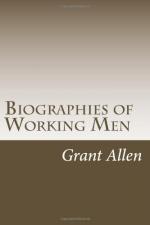Almost everybody who reads this book will remember the long suspense, while the President lay stretched upon his bed for weeks and weeks together, with all Europe and America watching anxiously for any sign of recovery, and sympathizing deeply with the wounded statesman and his devoted wife. Every effort that was possible was made to save him, but the wound was past all surgical skill. After lingering long with the stored-up force of a good constitution, James Garfield passed away at last of blood-poisoning, more deeply regretted perhaps than any other man whom the present generation can remember.
It is only in America that precisely such a success as Garfield’s is possible for people who spring, as he did, from the midst of the people. In old-settled and wealthy countries we must be content, at best, with slower and less lofty promotion. But the lesson of Garfield’s life is not for America only, but for the whole world of workers everywhere. The same qualities which procured his success there will produce a different, but still a solid success, anywhere else. As Garfield himself fittingly put it, with his usual keen American common sense, “There is no more common thought among young people than the foolish one, that by-and-by something will turn up by which they will suddenly achieve fame or fortune. No, young gentlemen; things don’t turn up in this world unless somebody turns them up.”
VII.
Thomas Edward, shoemaker.
It is the object of this volume to set forth the lives of working men who through industry, perseverance, and high principle have raised themselves by their own exertions from humble beginnings. Raised themselves! Yes; but to what? Not merely, let us hope, to wealth and position, not merely to worldly respect and high office, but to some conspicuous field of real usefulness to their fellow men. Those whose lives we have hitherto examined did so raise themselves by their own strenuous energy and self-education. Either, like Garfield and Franklin, they served the State zealously in peace or war; or else, like Stephenson and Telford, they improved human life by their inventions and engineering works; or, again, like Herschel and Fraunhofer, they added to the wide field of scientific knowledge; or finally, like Millet and Gibson, they beautified the world with their noble and inspiring artistic productions. But in every one of these cases, the men whose lives we have been here considering did actually rise, sooner or later, from the class of labourers into some other class socially and monetarily superior to it. Though they did great good in other ways to others, they did still as a matter of fact succeed themselves in quitting the rank in which they were born, and rising to some other rank more or less completely above it.




